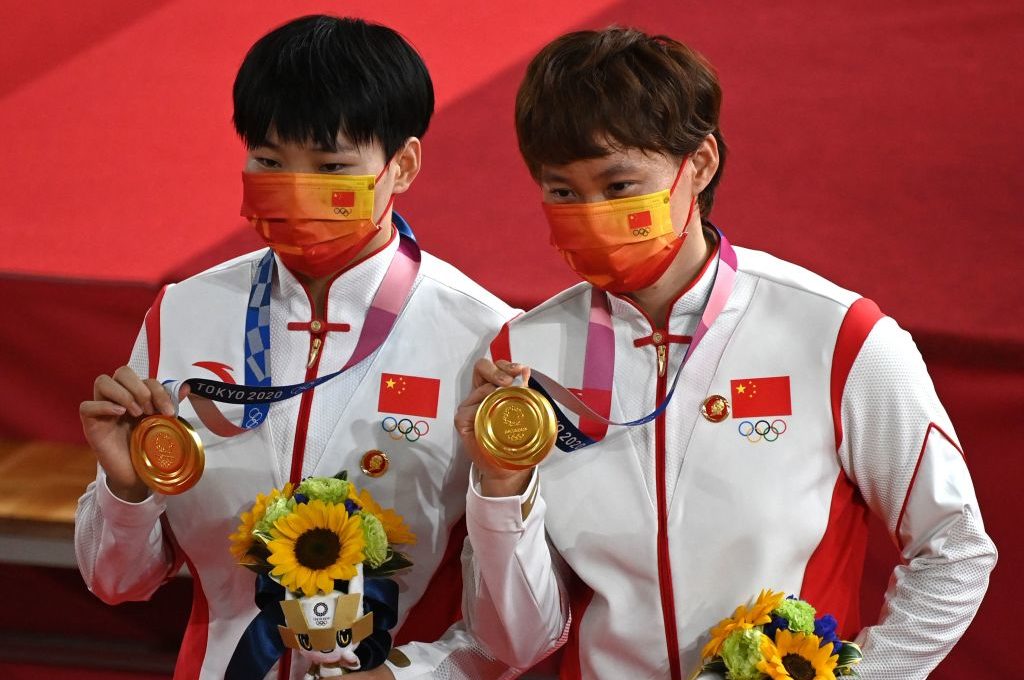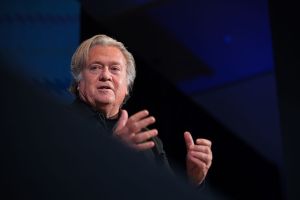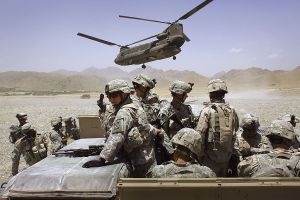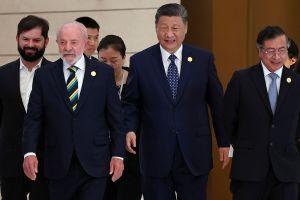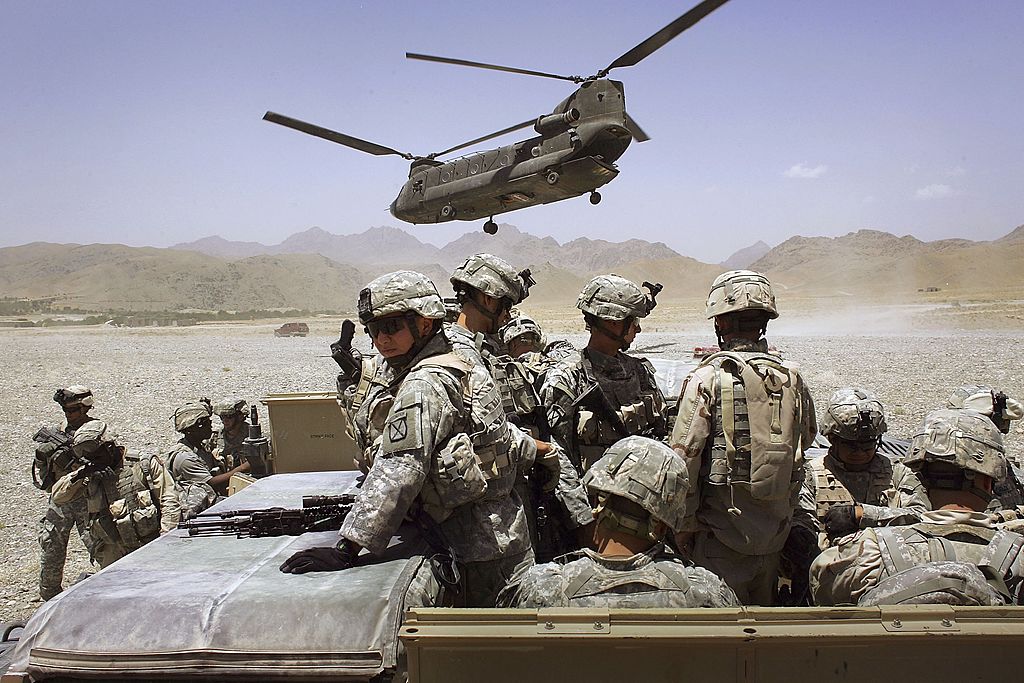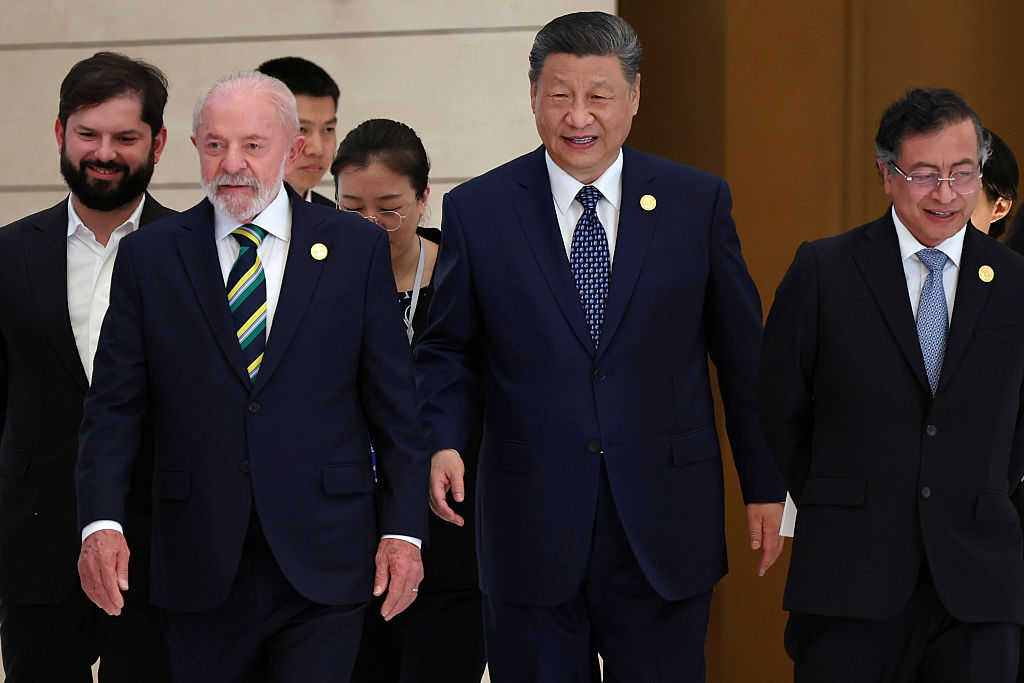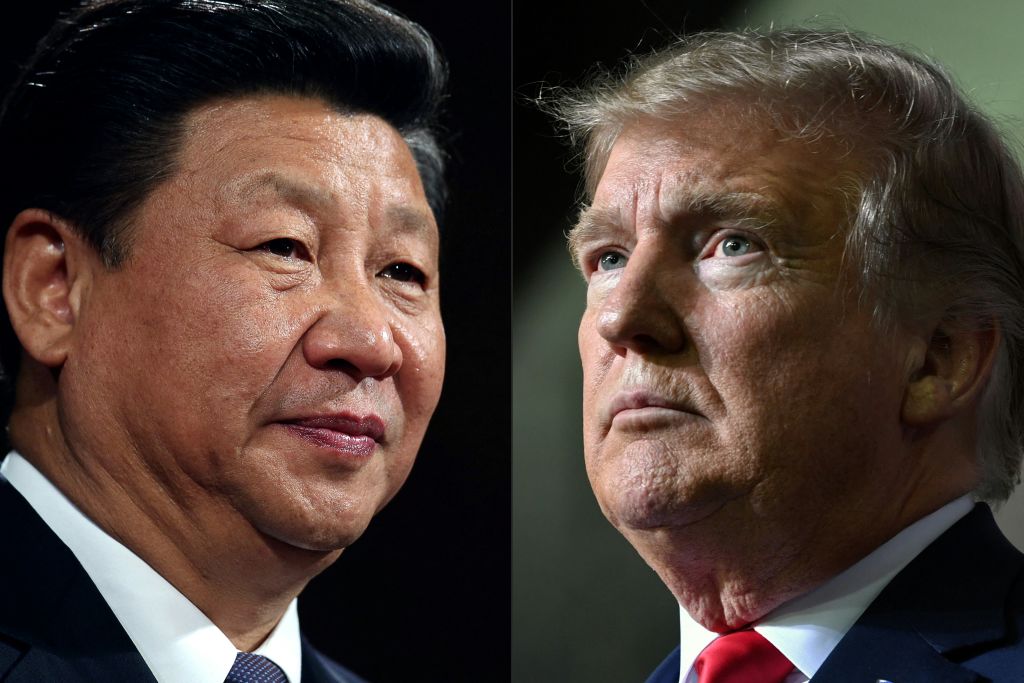As one of the embassy drivers I met in Beijing saw it, ferrying diplomats to meetings was secondary to his responsibility of lecturing us on China’s true place in the world. A conversational bully, to Mr Wang listening was a sign of weakness. Crossing Tiananmen with its vast picture of Chairman Mao, I interrupted his flow to ask his opinion of the Great Helmsman.
‘Great man. He made China great.’
‘But,’ I asked, ‘what about the fact that he caused the avoidable deaths of a minimum of 36 million Chinese, the figure reached by a Chinese Communist party (CCP) member and official news agency journalist after years of research?’
‘No, it was not so many.’
Eventually, after a negotiation in which I disingenuously suggested 10 million as the total, he generously conceded 15 million as reasonable.
‘So what do you think of a man who needlessly caused the death of 15 million Chinese people?’
‘Well… er, he was still a great man.’
I think of this conversation when I look at the many statues, badges and pictures of Mao which adorn my study. Even with a sense of irony, is it acceptable to have images of the greatest mass murderer of the 20th century looking over my shoulder?
And I thought of it again when two Chinese cyclists wore Mao badges as they accepted their gold Olympic medals.
With the CCP using nationalism to boost its legitimacy, presumably they thought that this would go down well back home. It did for a few hours. The Global Times, the CCP’s in-house paper, lauded their move. Then the article was taken down and state broadcasters airbrushed the badges from the photos. For a country about to host the Winter Olympics next year, encouraging the breaking of International Olympic Committee Rule 50 (‘No kind of demonstration or political, religious or racial propaganda is permitted in any Olympic sites, venues or other areas’) is unwise.
But let us not be too prissy about this: the Olympics has always been less about the Corinthian ideal and more in line with Spartan totalitarianism and its need to be demonstrably superior — hence Hitler’s 1936 games, the boycotts of Moscow 1980 and Los Angeles 1984, the state-driven drugs cheating of the Soviet Union and Russia. So should two tiny badges of a dead leader rouse our passions?
Not perhaps per se (although imagine the outcry if German or Russian athletes sported badges of Hitler or Stalin, the silver and bronze winners in the mass murder marathon). It is also interesting to reflect on why the CCP still honors Mao. The answer is that it cannot disavow the man above all responsible for bringing it to power. He remains an unjettisonable part of CCP history, myth and legitimacy. Mao founded the People’s Republic of China; how can the CCP chop away the foundation for its monopoly on power? No wonder Xi Jinping has made ‘historical nihilism’, the denial of the party’s narrative of its success, a serious crime.
We shall see what action the IOC takes against the Chinese cyclists. Don’t hold your breath: you risk auto-asphyxiation. So far it has not made any comment on the Winter Olympics being held by a regime currently carrying out crimes against humanity and, according to the UN convention’s definition, genocide against the Uighur people in Xinjiang. So it is hardly likely to offend by taking action over a surfeit of cyclists’ nationalism.
But there is an area where the IOC should be taking action: the continued humiliation of Taiwan’s 23 million people, who have to endure their country participating under the name of ‘Chinese Taipei’. To put that into context, imagine a post-independence Scotland competing as ‘English Edinburgh’ — it is that bad because most Taiwanese do not consider themselves to be Chinese. Taiwan is a country. It meets the four qualifications for statehood laid down in the Montevideo Convention, which reflects international customary law: a permanent population, a defined territory, a government, and a capacity to enter into relations with the other states.
It won’t happen of course. The IOC knows that the Olympics are highly political. But what it does not know is where to draw the line between sport as soft power (we all participate in that event) and sport as hard political power — the CCP is the world record holder. We can only hope — forlornly, one suspects — that countries have learnt from reactions to the Beijing Winter Olympics and don’t award the 2030 World Cup to China, bidding for which starts next year. Fifa might want to avoid the threat of boycotts and disruptions which holding a World Cup in a genocidal state might bring.
But free and open countries should support Taiwan if it applies to abandon the humiliating title of ‘Chinese Taipei’ for international sporting events.
Meanwhile the IOC has added to the Olympic motto: ‘faster, higher, stronger — together’, or in Latin ‘citius, altius, fortius — communis’. How very woke. ‘Together’? The Olympics have always been at best about patriotism, but often nationalism. The irresistible temptation is to follow Margot Asquith and her famous putdown of Jean Harlow: ‘The “t” is silent, as in your surname.’ There is an element of prostitution in the way the IOC approaches communis(t) China.
This article was originally published on The Spectator’s UK website.



